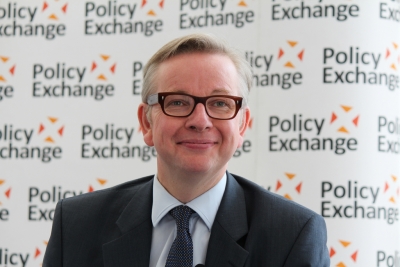Last Wednesday at the Piccadilly Picturehouse, prominent Leave campaigner Michael Gove and Remain-supporting Labour MP Stephen Kinnock locked horns over the claim that the UK will ‘take back control’ through Brexit, as part of a series of live, thought-provoking debates convened by The Week Magazine.
During the engaging 45-minute showdown, Gove and Kinnock debated how UK sovereignty can best be strengthened, and the kind of trade deals that need to be sought in a post-Brexit world.
Gary Barlow had been in attendance at the same venue on Wednesday, and though Gove initially quipped “I want EU back for good”, he was firm that Brexit would allow the UK to regain control over its laws and economic affairs, free from the “suffocation” of Brussels.
Economically, the Government can now look beyond the EU’s single market towards a broader array of trade relations. Theresa May has already visited the US this year to discuss a major free trade deal between the two countries, involving tariff cuts and greater opportunities for workers to move from one country to the other.
The UK is also looking to form a closer economic relationship with New Zealand, and then use this as a springboard to push for further global trade liberalisation and reform. Secretary of State for International Trade Liam Fox will visit the country in the coming months to kick-start this mission.
In the media, Gove has also mentioned the “stifling” European Clinical Trials Directive, which by over-regulation arguably weakened the UK’s reputation as one of the best countries to test new drugs on patients. Brexit, according to Gove, will allow the UK to be more liberal and risk-oriented on trials.
If Gove stood by his pre-Referendum support for ‘taking back control’, Kinnock painted the defining catchphrase of the Brexit campaign as a con. On the economy, Kinnock argued that the UK would retain close links to the single market while losing all of its rights to have a say in how that market operates.
He also pointed out, as many others did in the lead-up to the referendum, the increasingly interdependent nature of our world, and the fact that the UK should “pool sovereignty to strengthen sovereignty”. Global challenges such as climate change, tax avoidance, immigration and terrorism are best tackled through continual cooperation. Despite its weaknesses and failures, the EU is an international institution capable of confronting these issues.
Kinnock’s final challenge to Gove was perhaps the most interesting. Who exactly gets to ‘take back control’ when Brexit is delivered? Is it communities up and down the country, or Westminster elites?
Given that the Leave vote was driven in part by angry, alienated groups of people cut off from the benefits of globalisation, so Kinnock argued, an investment-driven industrial strategy is required to revive the opportunities of those in such situations. EU funding would have been a key source for this project, but given its imminent withdrawal, where will the money for investment come from? How will the ‘ordinary working families’ whom the Conservatives reference really ‘take back control’ when Brexit arrives?




